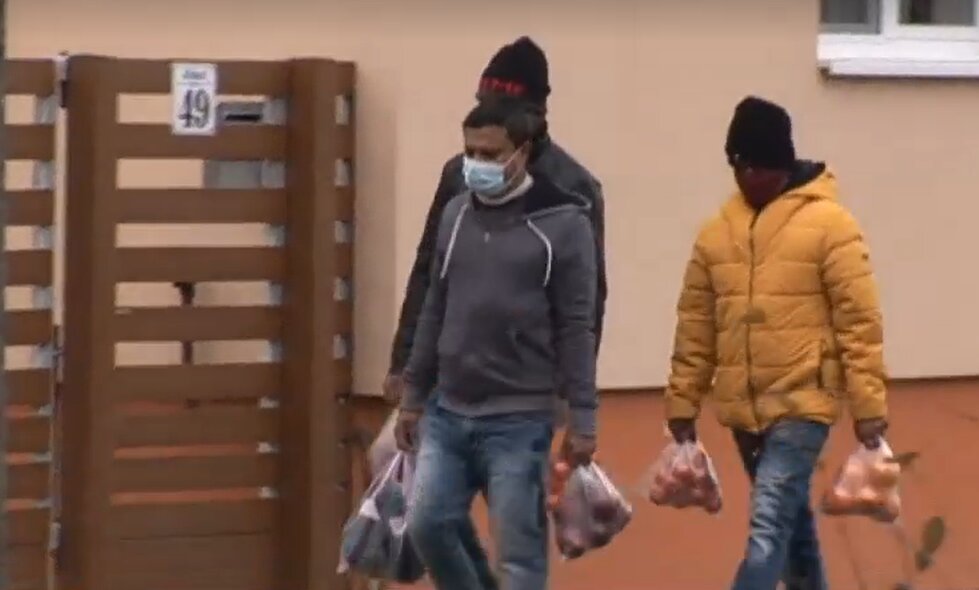Change language:
Attention! Orbán cabinet introduces stricter rules on guest worker employment – UPDATE: foreign workers’ nr

The new measures the Orbán cabinet introduces would like to help the employment of the Hungarian workforce in Hungary. For example, employers in Hungary can no longer hire guest workers from third countries if authorities prove that they refused to give a job to Hungarian job seekers due to unsupported claims. The new measure’s aim is to baulk favouring guest worker employment in Hungary.
A guest worker can only be employed if suitable Hungarian job seekers do not apply for the job
According to Szabad Európa, the new rules were published in a government decree dealing with several other issues. There are three key tightenings concerning third-country job seekers and their employers in Hungary.
First, employers punished with administrative or OSHA fines in the previous 12 months cannot hire a guest worker. Secondly, they cannot hire a guest worker from a third country if they were punished for illegally employing guest workers before. Finally, employers under compulsory liquidation, and forced strike-off cannot hire a guest worker.

If a Hungarian employer rejects to hire a Hungarian job seeker because of unsupported claims, they should expect sanctions.
UPDATE: Almost 130 thousand third country foreign workers in Hungary
Guest workers may only fill positions in Hungary that can’t be taken by Hungarians, Minister of Foreign Affairs and Trade Péter Szijjártó said at a hearing before a parliamentary committee on Thursday. Szijjártó dismissed suggestions that guest workers were taking jobs away from Hungarians at the hearing before the foreign affairs committee, his ministry said. He noted that there were 128,000 workers from countries outside of the European Union in Hungary at present, while the number of unfilled positions stood at 71,000.
He added that investments were only eligible for state support if a majority of Hungarians were employed in their implementation or attempts had been made to hire locals for all available positions. Szijjártó said guest workers accounted for just 2.6pc of the employed in Hungary, under the rates of 3.8pc in Slovakia, 6.4pc in Poland and 17pc in Czechia. Addressing other questions, he said the government’s economic strategy was not based “solely” on battery manufacturing investments, but added that the electromobility transition was necessary to meet environmental targets.
Hungary has the fourth-largest battery manufacturing capacity in the world at present and could move into second place after investments in the pipeline are completed, he said.
Government clears new economic policy action plan
Hungary’s government has approved a new economic policy action plan that uses new solutions and new policy tools to adapt to changed circumstances, the National Economy Ministry said on Wednesday.
Adopting a policy of economic neutrality is the only way to ensure Hungary the chance to boost its GDP growth to 3-6pc in 2025, the ministry said. The government aims for the broadest possible participation in the economic upturn, especially for families, microbusinesses and SMEs, it added.

The new economic policy aims to increase the purchasing power of working Hungarians, ensure affordable housing and scale up businesses with the launch of the Demján Sándor Programme, the ministry said.
Significant wage rise in cooperation with the employers
Measures affecting incomes include a three-year agreement between employers and unions on minimum wage increases, the launch of a credit scheme for young blue-collar workers, and the doubling—in two steps—of the tax preference for families with children.
Among the affordable housing measures, tighter regulation of short-term rentals, a review of rental rates and contract conditions, and the addition of dormitory rooms are targeted at the capital. Broader measures include the establishment of a home programme for young Hungarians, the launch of a home renovation scheme for smaller settlements, a temporary rule allowing up to half of SZÉP voucher card spending to be used for home renovation, a temporary provision on use of voluntary pension fund savings for home purchase and renovation, tax preferences for employer contributions to home purchases, the extension of the 5pc preferential VAT rate on home purchases until the end of 2026 and a 5pc voluntary cap on mortgage rates with the cooperation of the banking sector.
Measures that aim to double the size of Hungarian SMEs include a capital financing programme, a scheme to promote investments at SMEs, a programme to ensure all businesses have their own homepage, a reduction of the rate on Szechenyi Card credit to 3.5pc, the start of a credit programme by Magyar Eximbank to boost exports, the acceleration of European Union programmes for SMEs and a reduction in administration for SMEs with the raising of the threshold for mandatory auditing.
Restarting growth goal of economic policy, says the Orbán government
Restarting growth is the main goal of the government’s economic policy this year, Richárd Szabados, the state secretary for SMEs, said at a conference on Wednesday. Support for the recovery of household consumption, promoting domestic production and investment, and stepping up labour market activity are pillars of restarting economic growth, Szabados said at the Infoter conference in Balatonfüred. SMEs need to be strengthened to achieve 3-6pc GDP growth in 2025, he added.
He noted that eight of the 21 measures in the government’s new economic policy action plan unveiled earlier on Wednesday affected SMEs. He pointed to the need for more export-capable Hungarian-owned SMEs, noting that just 30,000 of the 900,000 SMEs in the country were exporters and the majority of those were foreign-owned. Touching on the EU’s AI Act, Szabados said the regulations were expected to have a positive impact, but added that their implementation couldn’t involve too much red tape.
Read also:
- Big changes are coming: Orbán cabinet presents a deregulation package for tourism – read more HERE
- Orbán government celebrates success, but Hungary faces its steepest economic decline of the year








The government really seems all over the place with this. If they want to be tough on guest workers, then why on earth are they welcoming the development of new factories and industries that will rely on guest workers, it seems, before they are even opened. This is ridiculous, and they ought to get a grip. Either they will accept the need for imported labour, or they shouldn’t court industries where it seems that there are no Hungarian workers able to do the necessary work.
Can we really not get “guest workers,” if such are needed, from Moldova or Macedonia but need to import them from literally the other end of the world!?!
It’s known as ‘bait and switch’ messaging and policy ie. lots of anti-immigrant rhetoric to fire up voters, then quietly in the background immigration continues. May have been learnt from the Danube Institute’s former and most incompetent Australian PM Tony ‘stop the boats’ Abbott, also Murdoch’s Fox Board.
Anglo and now European anti-immigrant agitprop eg ‘the great replacement’ is a symptom of US Tanton Network (cooperate with Koch Network Heritage) eg. polices and personalities like Bannon, Farage, Carlson/FoxNews et al, though Orban 10+ years ago deported friends of Tanton’s inc Jared Taylor.
Network of dec. white nationalist John ‘passive eugenics’ Tanton, the ‘architect of the modern anti-immigation movement’; white Christian nationalist, anti-semitic, pro-abortion, border/population control, Islamophobic and anti-Catholic.
https://bridge.georgetown.edu/research/factsheet-john-tanton/